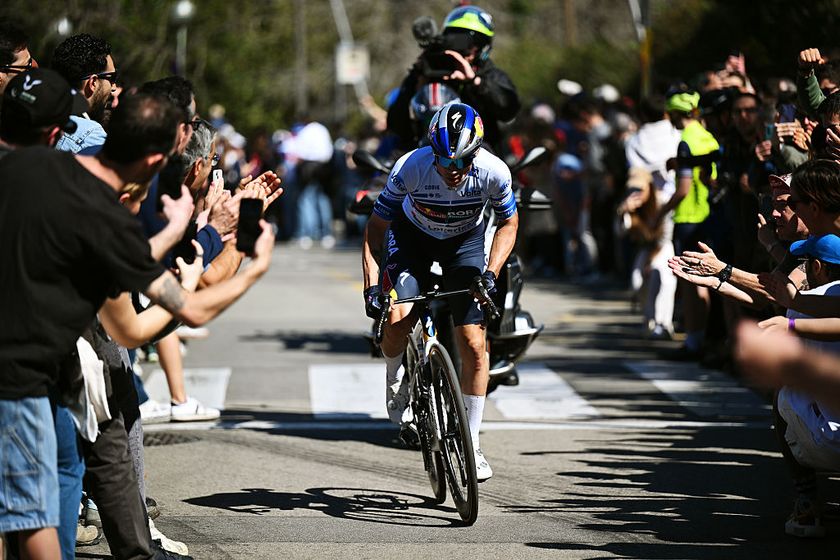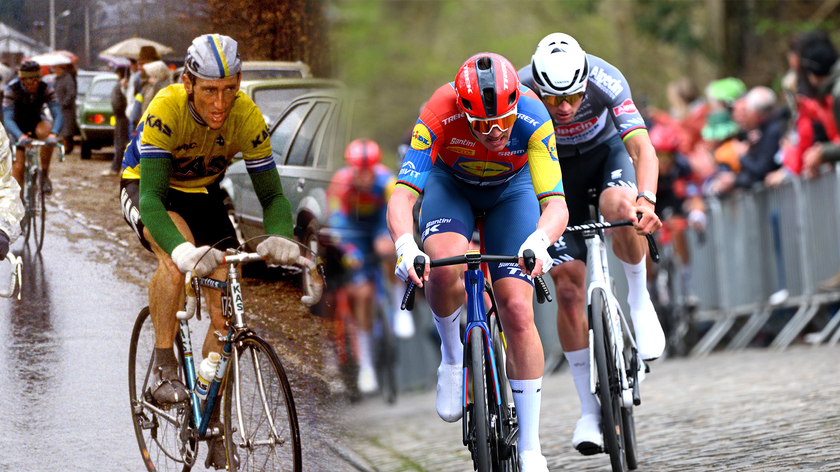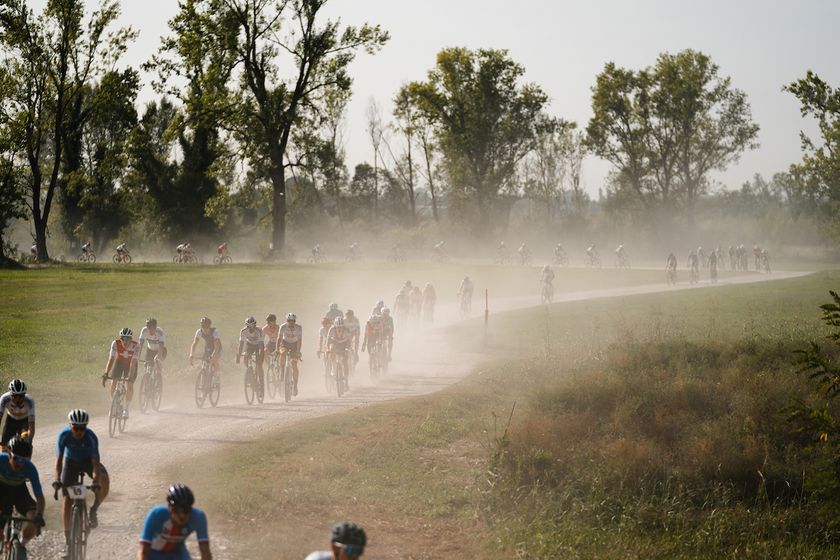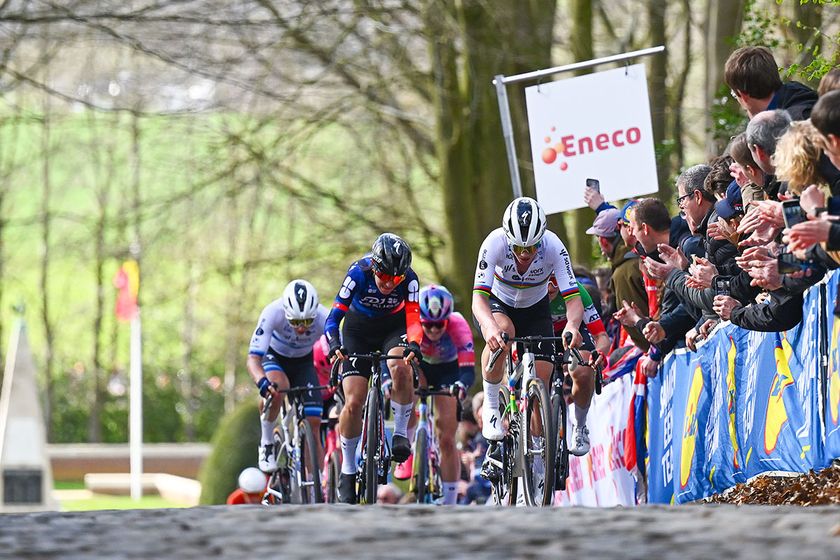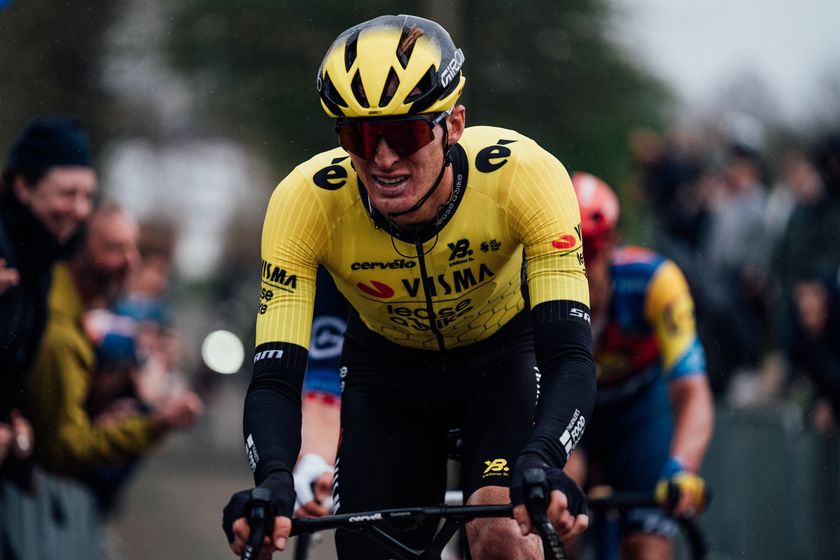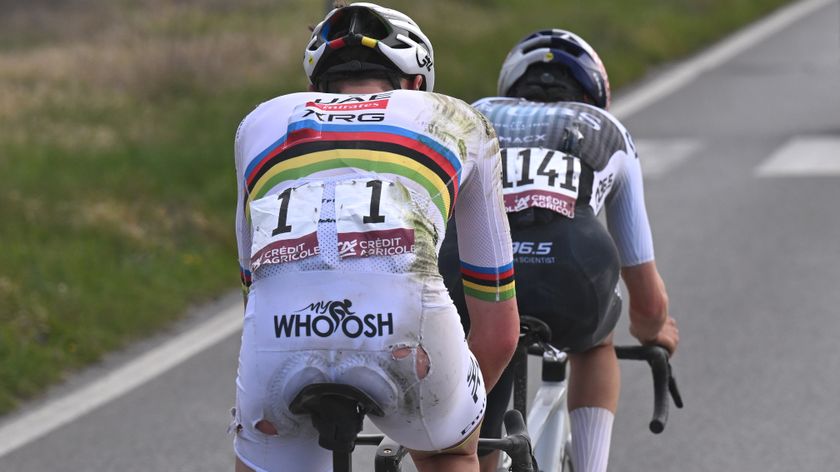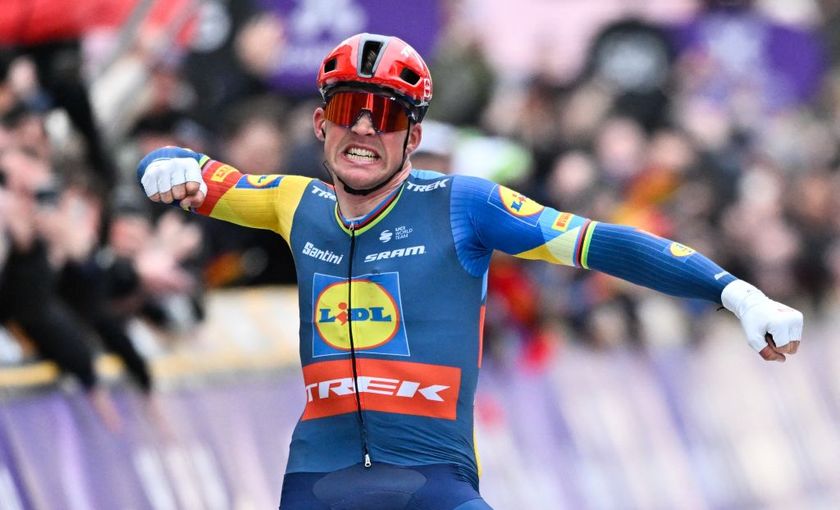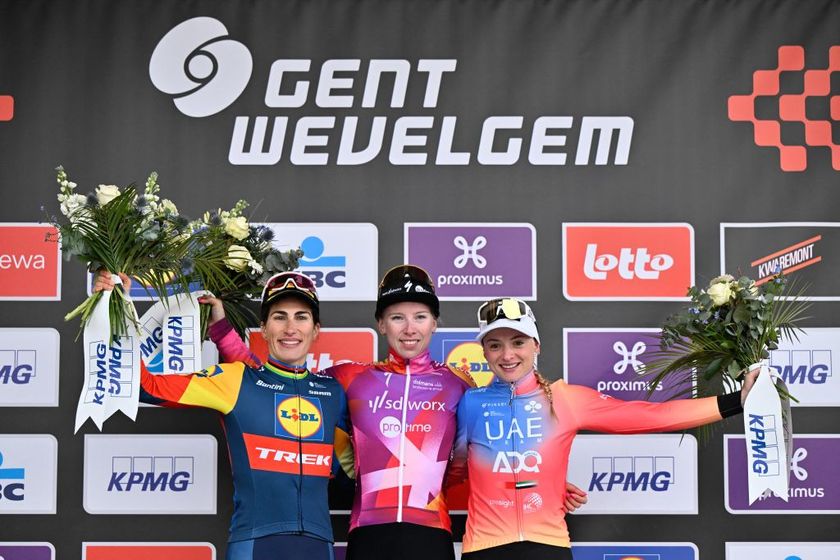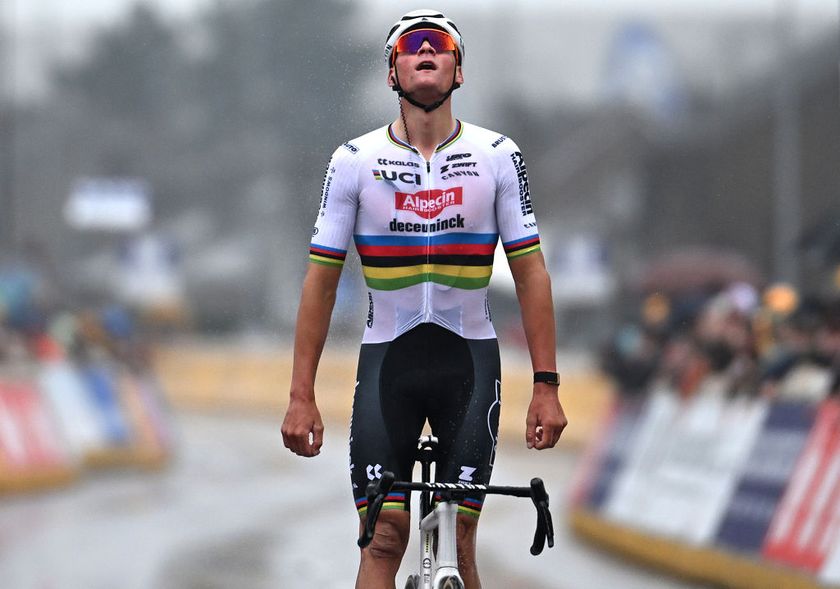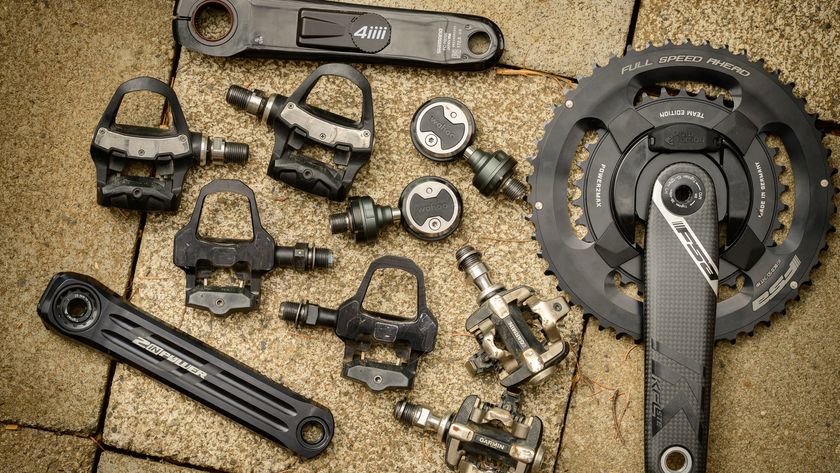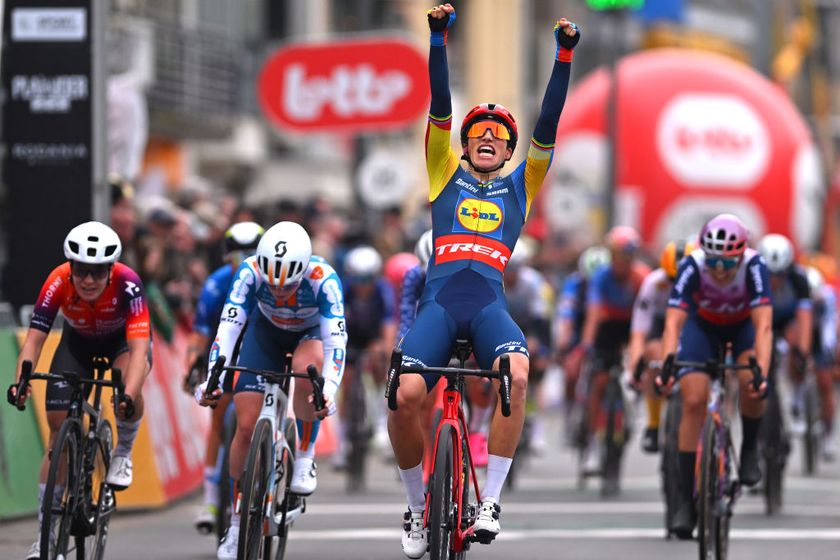Fitness questions and answers for February 10, 2004
Got a question about fitness, training, recovery from injury or a related subject? Drop us a line at...
Form & Fitness Q & A
Got a question about fitness, training, recovery from injury or a related subject? Drop us a line at fitness@cyclingnews.com. Please include as much information about yourself as possible, including your age, sex, and type of racing or riding.
Carrie Cheadle, MA (www.carriecheadle.com) is a Sports Psychology consultant who has dedicated her career to helping athletes of all ages and abilities perform to their potential. Carrie specialises in working with cyclists, in disciplines ranging from track racing to mountain biking. She holds a bachelors degree in Psychology from Sonoma State University as well as a masters degree in Sport Psychology from John F. Kennedy University.
Dave Palese (www.davepalese.com) is a USA Cycling licensed coach and masters' class road racer with 16 years' race experience. He coaches racers and riders of all abilities from his home in southern Maine, USA, where he lives with his wife Sheryl, daughter Molly, and two cats, Miranda and Mu-Mu.
Kelby Bethards, MD received a Bachelor of Science in Electrical Engineering from Iowa State University (1994) before obtaining an M.D. from the University of Iowa College of Medicine in 2000. Has been a racing cyclist 'on and off' for 20 years, and when time allows, he races Cat 3 and 35+. He is a team physician for two local Ft Collins, CO, teams, and currently works Family Practice in multiple settings: rural, urgent care, inpatient and the like.
Fiona Lockhart (www.trainright.com) is a USA Cycling Expert Coach, and holds certifications from USA Weightlifting (Sports Performance Coach), the National Strength and Conditioning Association (Certified Strength and Conditioning Coach), and the National Academy for Sports Nutrition (Primary Sports Nutritionist). She is the Sports Science Editor for Carmichael Training Systems, and has been working in the strength and conditioning and endurance sports fields for over 10 years; she's also a competitive mountain biker.
Eddie Monnier (www.velo-fit.com) is a USA Cycling certified Elite Coach and a Category II racer. He holds undergraduate degrees in anthropology (with departmental honors) and philosophy from Emory University and an MBA from The Wharton School of Business.
Eddie is a proponent of training with power. He coaches cyclists (track, road and mountain bike) of all abilities and with wide ranging goals (with and without power meters). He uses internet tools to coach riders from any geography.
Get The Leadout Newsletter
The latest race content, interviews, features, reviews and expert buying guides, direct to your inbox!
David Fleckenstein, MPT (www.physiopt.com) is a physical therapist practicing in Boise, ID. His clients have included World and U.S. champions, Olympic athletes and numerous professional athletes. He received his B.S. in Biology/Genetics from Penn State and his Master's degree in Physical Therapy from Emory University. He specializes in manual medicine treatment and specific retraining of spine and joint stabilization musculature. He is a former Cat I road racer and Expert mountain biker.
Since 1986 Steve Hogg (www.cyclefitcentre.com) has owned and operated Pedal Pushers, a cycle shop specialising in rider positioning and custom bicycles. In that time he has positioned riders from all cycling disciplines and of all levels of ability with every concievable cycling problem.They include World and National champions at one end of the performance spectrum to amputees and people with disabilities at the other end.
Current riders that Steve has positioned include Davitamon-Lotto's Nick Gates, Discovery's Hayden Roulston, National Road Series champion, Jessica Ridder and National and State Time Trial champion, Peter Milostic.
Pamela Hinton has a bachelor's degree in Molecular Biology and a doctoral degree in Nutritional Sciences, both from the University of Wisconsin-Madison. She did postdoctoral training at Cornell University and is now an assistant professor of Nutritional Sciences at the University of Missouri-Columbia where she studies the effects of iron deficiency on adaptations to endurance training and the consequences of exercise-associated changes in menstrual function on bone health.
Pam was an All-American in track while at the UW. She started cycling competitively in 2003 and is the defending Missouri State Road Champion. Pam writes a nutrition column for Giana Roberge's Team Speed Queen Newsletter.
Dario Fredrick (www.wholeathlete.com) is an exercise physiologist and head coach for Whole Athlete™. He is a former category 1 & semi-pro MTB racer. Dario holds a masters degree in exercise science and a bachelors in sport psychology.
Scott Saifer (www.wenzelcoaching.com) has a Masters Degree in exercise physiology and sports psychology and has personally coached over 300 athletes of all levels in his 10 years of coaching with Wenzel Coaching.
Kendra Wenzel (www.wenzelcoaching.com) is a head coach with Wenzel Coaching with 17 years of racing and coaching experience and is coauthor of the book Bike Racing 101.
Steve Owens (www.coloradopremiertraining.com) is a USA Cycling certified coach, exercise physiologist and owner of Colorado Premier Training. Steve has worked with both the United States Olympic Committee and Guatemalan Olympic Committee as an Exercise Physiologist. He holds a B.S. in Exercise & Sports Science and currently works with multiple national champions, professionals and World Cup level cyclists.
Through his highly customized online training format, Steve and his handpicked team of coaches at Colorado Premier Training work with cyclists and multisport athletes around the world.
Brett Aitken (www.cycle2max.com) is a Sydney Olympic gold medalist. Born in Adelaide, Australia in 1971, Brett got into cycling through the cult sport of cycle speedway before crossing over into road and track racing. Since winning Olympic gold in the Madison with Scott McGrory, Brett has been working on his coaching business and his www.cycle2max.com website.
Richard Stern (www.cyclecoach.com) is Head Coach of Richard Stern Training, a Level 3 Coach with the Association of British Cycling Coaches, a Sports Scientist, and a writer. He has been professionally coaching cyclists and triathletes since 1998 at all levels from professional to recreational. He is a leading expert in coaching with power output and all power meters. Richard has been a competitive cyclist for 20 years
Andy Bloomer (www.cyclecoach.com) is an Associate Coach and sport scientist with Richard Stern Training. He is a member of the Association of British Cycling Coaches (ABCC) and a member of the British Association of Sport and Exercise Sciences (BASES). In his role as Exercise Physiologist at Staffordshire University Sports Performance Centre, he has conducted physiological testing and offered training and coaching advice to athletes from all sports for the past 4 years. Andy has been a competitive cyclist for many years.
Michael Smartt (www.cyclecoach.com) is an Associate Coach with Richard Stern Training. He holds a Masters degree in exercise physiology and is USA Cycling Expert Coach. Michael has been a competitive cyclist for over 10 years and has experience coaching road and off-road cyclists, triathletes and Paralympians.
Kim Morrow (www.elitefitcoach.com) has competed as a Professional Cyclist and Triathlete, is a certified USA Cycling Elite Coach, a 4-time U.S. Masters National Road Race Champion, and a Fitness Professional.
Her coaching group, eliteFITcoach, is based out of the Southeastern United States, although they coach athletes across North America. Kim also owns MyEnduranceCoach.com, a resource for cyclists, multisport athletes & endurance coaches around the globe, specializing in helping cycling and multisport athletes find a coach.
Altitude
Climbing, strength & anemia
Etape du Tour
Fibula fracture - recovery time?
Heart rate training
Improving the "jump"
Low heart rate
Mixing interval and endurance training
Altitude
How should a rider prepare for an event that is hosted in a town where the main street is 7,000 feet? The town says its elevation goes from 6,500-10,000 feet. Where we live the elevation is 300-500 feet. How long would we need to be at the venue to acclimate? How much better would this be than the alternative of showing up as close to the race date as possible?
Mark Paggioli
Scott Saifer replies:
What you do about this question depends on how serious you are. Assuming you don't have the money for an altitude tent but that you are a serious bike racer with freedom to travel, I'd suggest going somewhere that you can sleep at over 6000 feet elevation for about three weeks, return home for one week, and then return to the venue one week in advance of the event. This would make a huge difference in your ability to race at altitude. Remember that it is spending time breathing at altitude and not training at altitude that is important.
Climbing, strength & anemia
I started regular cycling last fall (but I did it occasionally before) and want to climb Mt Ventoux next summer with a bunch of friends. I'm 24yrs old, 1,87 tall, weighing around 82-83Kg and always did a lot of sports (running, surfing, windsurfing) before I got into cycling.
I curiously read most of the "strength and cycling" articles and found the viewpoint of Ric Stern quite plausible. But everytime I climbed so far (up to about 1000mtrs.) it wasn't the heart or lung which made my cry, but the legs. I really felt that with more strengh, I could climb more easily. I should add, that I did weight training during the last 4 years, but not too intense. Is this an aspect forgotten in the articles so far, or am I totally fooled by my body?
Another thing: I recently found out that I'm on the edge to anemia, my hematocrit is 41%. It seems to lie a bit in the family. Is there any way to change this to a somewhat more normal value WITHOUT taking any drugs?
Florian Siedenburg
Germany
Andrew Grant replies:
Hematocrit is the number of red blood cells in the blood expressed as a percentage. Normal hematocrit for a male is between 39 and 52 percent. Your hematocrit is 41% is within the normal range. The only legal method of increasing your hematocrit is to train at altitude or sleep in a nitrogen tent.
Etape du Tour
I have signed up to ride the Etape du Tour, the longest leg of the Tour this year in France. It's 238km with an approx. 1500 meter climb. Here's the weblink: http://www.letapedutour.com/2004/us/index.htm
I am a pretty amateur cyclist. Competed on a few Olympic triathlons around the 2:30 range and a few mountain bike races, Xterras etc. The longest I've ever ridden in 130km.
I'm just getting back on the bike after traveling over the holiday period.
I have a few general questions:
1. Training suggestions?
2. Eating suggestions for the event?
3. I live in a really flat area with no hills. Any way to train for them on the flats, stationary bike?
Any advice would be much appreciated!
Andrew McKeon
Beppo Hilfiker replies:
Congratulations, you set your mind on a great challenge!
Fibula fracture - recovery time?
I'm a 38 year old Vet-Expert/Master cyclist living in Victoria, British Columbia. After having a respectable 2003 season as a Vet on the roads and mtb I recently fractured my fibula while doing some off-season training (slipped/fell on some ice while running on local trails). The hospital x-ray showed a clear spiral fracture about 3-4cm long at the top of the bone, just below my knee. Some swelling is visible but it's generally just a dull, aching pain - I can only put weight on it for short periods of time.
The doctor opted to not cast the leg and said to rely on my "pain tolerance" as a guide as to what type of activities I try to do and how soon I attempt them, although he did say do very little for the next 3 weeks. This seems like good advice but I'm also a bit concerned that I might push too hard too soon. How long does it usually take for a fibula injury like this to heal? Would riding rollers/stationary bike be reasonable to attempt in 2-3 weeks, with light resistance if there's no pain? Do you recommend swimming or other activities for cyclists with similar leg injuries?
Thanks in advance for any advice and keep up the great work on this site!
Steve Bachop
Victoria BC, Canada
Dave Fleckenstein replies:
While it is always a most unfortunate thing to have a fracture, you have chosen the right bone to fracture. The fibula is essentially a non-weight bearing bone and can tolerate a fair amount of motion without adverse effects. Without going to Tyler-like thresholds, your physician is exactly appropriate in stating that you can do what you want within reasonable pain limits. I think that allowing 2-3 weeks for the initial inflammation to calm and some bone callous formation to occur is a great idea (trying to push at that time will only set you back) and then I feel that you could be fairly aggressive with rollers or the turbo trainer. I would recommend waiting 6 weeks until initiating strength training. Swimming is fine, and water jogging with a vest (not touching the bottom) is an additional excellent workout, and almost as exciting as riding rollers staring at a white wall....
Heart rate training
I'm a 14 year old male, I race road and some track.
I recently bought a heart rate monitor(Polar A3) and am wondering how hard I should train. Should I train in between the 2 preset limits (high-175, low-134) all the time or just train between the limits some days. If I train below the low limit (134) will it be any benefit?
Lee Hall
Scott Saifer replies:
There is value to training at all heart rates at some point, including below the low limit. The majority of your training time should be between 60 and 80% of your own personal maximum heart rate, which may or may not be close to the preset zone. Harder riding is appropriate a couple of days per week in the month or two before the racing season. Once racing starts, I'd suggest doing very little time above 80% of maximum except in the races.
Improving the "jump"
Just wondering if Brett or anyone else, could tell me the best way to improve my jump for the 200m sprint? I've just started track cycling and have as much top end speed as the top racers in my age group, in my state but just don't have the "jump" and loose ground from the beginning. Any specific weight training or track training suggestions?
J.A. Masefield
Brett Aitken replies:
Please forgive the long delay. It's been a hectic last month for me. Sprinting and fast acceleration is a difficult physiological attribute to aquire for someone who doesn't have it naturally ie.( a high percentage of fast twitch muscle fibres). You can improve your ability though by focussing on efforts with high power in short bursts. You can do this in weight training but it can be a little dangerous for the inexperienced that try to do accelerated squats for example.
Low heart rate
I have recently been wearing a heart rate monitor every now and then, and have noticed that I can't get my heart rate very high. The highest I can get it is around 170, and 160 is all I can sustain. Does this mean I have a low max heart rate, or is my heart just much stronger than my legs? When I get to that heart rate my legs heart but I am not breathing too hard. If it helps, I am 14 and my resting heart rate is 36-38.
Christian Parrett
Andrew Grant replies:
How long have you been training for?
Mixing interval and endurance training
For the last 10 weeks I've been doing some serious mileage, about 20 hours a week. Now I want to incorporate some Lactate Threshold Intervals and Vo2 Max intervals into my training. Could you suggest the best length and repetitions for these specific intervals. Also, will it have any adverse effect if I continue to do rides of 5+ hours at low intensity. I'd actually like to increase my weekly riding to about 25 hours and still do speed work in between. Here is a brief look at what a typical build week would look like:
Sunday: 5h below 70% with Vo2Max Intervals
Monday: 3h-4h below 70%
Tuesday: 3h-4h below 70% with LTH intervals
Wednesday: 5h-6h below 70%
Thursday: Rest Day
Friday: 3h below 70% with LTH Intervals
Saturday: 2h Recovery Ride or Rest Day
I'd really appreciate your views and comments.
Kevin Kalis
Eddie Monnier replies:
I would have to know a lot more about you (e.g., at what level you compete, the types of events you typically race, how long you've been training, your capacity for training, etc.), to give more specific answers to your questions, so I'll provide some general comments.
